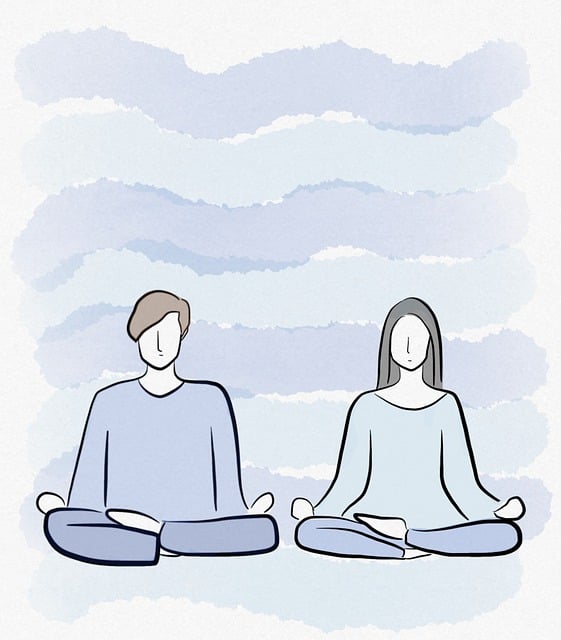Nature-based activities like hiking, gardening, or simply sitting in a park offer significant mental health benefits, particularly reducing anxiety. These experiences facilitate mindfulness, the practice of focusing on the present moment without judgment, which nature encourages through sensory engagement. Research shows these activities lower symptoms of anxiety disorders and enhance mental resilience, providing accessible and effective stress management techniques for modern life. By embracing mindfulness for anxiety in natural settings, individuals can cultivate healthier coping mechanisms.
Anxiety can be a relentless companion, but nature offers a powerful elixir for easing its grip. This article explores how leveraging the great outdoors and natural activities can serve as an effective strategy to combat anxiety. We delve into the science behind the connection between nature and mental well-being, uncover therapeutic outdoor practices, and present practical tips for incorporating mindfulness in natural settings. Discover how specific outdoor pursuits, from hiking to gardening, can become tools for managing anxiety, fostering calmness, and promoting long-term mental health through a nature-based routine.
- The Connection Between Nature and Mental Well-being
- – Exploring the therapeutic effects of natural environments
- – How spending time outdoors can reduce anxiety symptoms
- Mindfulness Practices in Outdoor Settings
The Connection Between Nature and Mental Well-being

The connection between nature and mental well-being has been a subject of interest for researchers and professionals in the field of mental health. Numerous studies have shown that spending time outdoors, surrounded by natural elements, can significantly ease anxiety and promote a sense of calm. This relationship is often attributed to the concept of mindfulness, which involves focusing on the present moment without judgment. Nature provides an ideal environment for cultivating mindfulness, allowing individuals to disconnect from stressful thoughts and engage their senses in a peaceful setting.
Outdoor activities such as hiking, gardening, or simply sitting in a park offer opportunities for introspection and relaxation. The sights, sounds, and smells of nature can be grounding, helping individuals to regain a sense of balance and perspective. Research suggests that these experiences can reduce symptoms of anxiety disorders and enhance overall mental resilience. By encouraging people to embrace mindfulness for anxiety through nature-based activities, we can foster healthier coping mechanisms and improve access to effective stress management techniques in today’s fast-paced world.
– Exploring the therapeutic effects of natural environments

The therapeutic power of nature has long been recognized, and its benefits for mental health, particularly in easing anxiety, are now backed by scientific research. Spending time outdoors, whether it’s a walk in the park, hiking in the woods, or simply sitting near a body of water, can have profound effects on our well-being. Being in natural environments encourages mindfulness for anxiety—a practice that involves focusing one’s awareness on the present moment while gently acknowledging and accepting feelings, thoughts, and bodily sensations. This connection with nature allows individuals to detach from anxious thoughts and find calm.
Research suggests that immersing oneself in green spaces can reduce stress hormones, lower blood pressure, and improve mood. The tranquility of natural settings offers a respite from the constant stimulation and pressures of daily life, providing an opportunity for mental restoration. Whether it’s through observing wildlife, listening to birdsong, or simply breathing in fresh air, these sensory experiences can facilitate relaxation and promote a sense of peace, making nature a powerful ally in managing anxiety symptoms.
– How spending time outdoors can reduce anxiety symptoms

Spending time outdoors and connecting with nature can be a powerful tool in managing and reducing anxiety symptoms. Research suggests that being in natural environments promotes relaxation, improves mood, and enhances overall well-being. When individuals engage in outdoor activities like hiking, gardening, or simply sitting in a park, they often experience a sense of calm and tranquility. This is partly due to the reduction in sensory overload that urban settings can provide, allowing for a more peaceful state of mind.
The concept of using nature as a form of therapy, known as ecotherapy or green therapy, emphasizes the positive impact of outdoor experiences on mental health. Engaging in mindfulness practices outdoors, such as paying attention to one’s surroundings, breathing in nature’s scents, or listening to birdsong, can help individuals cultivate a sense of present-moment awareness, thus grounding them and reducing anxious thoughts. Additionally, physical activity in natural settings has been linked to lower stress levels and improved mood, offering an effective strategy for easing anxiety symptoms naturally.
Mindfulness Practices in Outdoor Settings

In the tranquility of outdoor settings, mindfulness practices offer a powerful tool to ease anxiety and promote mental well-being. Engaging in activities like hiking, gardening, or simply sitting by a lake allows individuals to connect with their surroundings, fostering a sense of calm and grounding. Mindfulness encourages focusing on the present moment—the feel of sun on skin, the scent of flowers, the sound of birds—diverting attention from anxious thoughts that often linger in the mind.
These outdoor practices facilitate mindfulness by engaging all senses, encouraging individuals to observe nature’s rhythms and patterns without judgment. Research suggests that spending time in green spaces reduces stress hormones and boosts mood, making it an effective strategy for managing anxiety. Whether through structured mindfulness walks or simply taking a moment to breathe in the fresh air, leveraging nature as a form of therapy can be a simple yet profound way to navigate and alleviate anxiety symptoms.
By harnessing the power of nature and incorporating outdoor activities into our routines, we can effectively ease anxiety and promote mental well-being. The connection between nature and mental health is undeniable, as exploring therapeutic environments and adopting mindfulness practices in outdoor settings have been proven to reduce anxiety symptoms. Incorporating these strategies into daily life offers a simple yet powerful way to navigate and manage stress, ultimately fostering a sense of calm and resilience.
